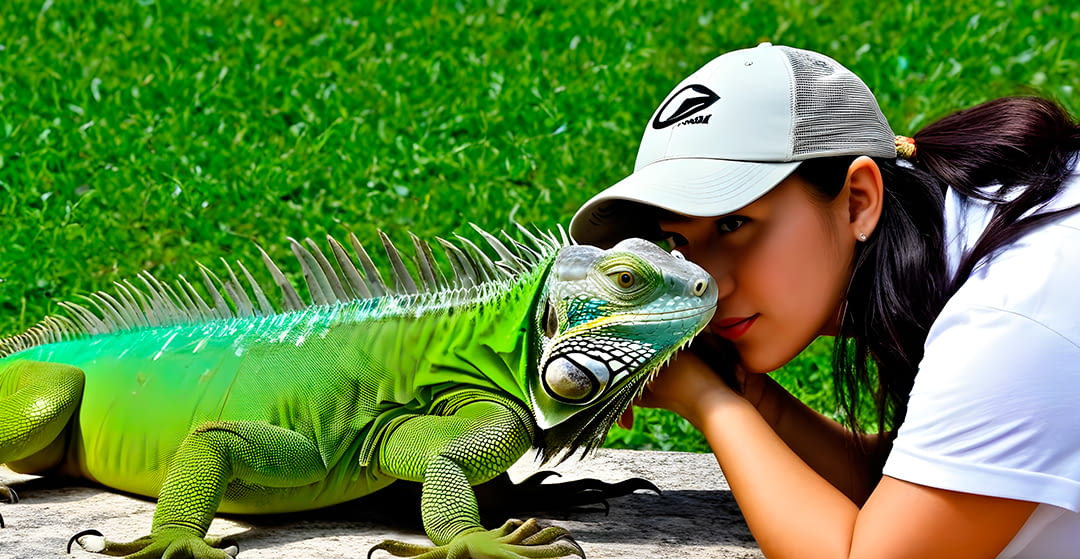
In homes around the world, there is a constant growth in the presence of exotic pets. From the common and benign ones, such as turtles, rabbits or chinchillas, to the most extravagant ones, such as foxes, tarantulas, boas or axolotls.
Owning unusual animals is not a recent trend; Throughout history, kings and emperors have collected rare specimens to display their power, such as elephants, lions or peacocks. Today, a variety of unusual pets, from snakes and squirrels to tropical fish, chameleons and wolves, are integrated into homes around the world, so specializing in these types of animals is a great job opportunity.
EXOTIC ANIMAL TECHNICIANS
An Exotic Animal Technician is a professional specialized in the care, management and well-being of animals that belong to non-traditional or exotic species. These technicians typically work in zoos, aquariums, specialized veterinary clinics, wildlife rehabilitation centers, licensed hatcheries, and other environments where rare animals are handled or exhibited.
For many animal lovers, it is an excellent idea to guide their future careers towards specialization in the management and care of these species. However, it is essential that the Exotic Animal Technician be familiar with the legal issues and ethical dilemmas associated with both the ownership and breeding of these animals.
To specialize as an Exotic Animal Technician, you must acquire exhaustive knowledge about the captive breeding of these species and promote the responsible adoption of exotic pets among the population.
The responsibilities of an Exotic Animal Technician may include:
· Daily care: Provide adequate food, monitor health and behavior, and ensure a nurturing environment for the animals' well-being.
· Safe handling: Carry out safe handling procedures to avoid risks for both animals and caregivers.
· Captive reproduction: Participate in captive reproduction programs for threatened or endangered species, thus contributing to the conservation of biodiversity.
· Advice and education: Provide advice to exotic pet owners on proper care and species-specific needs. Also participate in educational programs to raise public awareness about conservation and respect for exotic animals.
· Management of medical emergencies: Be prepared to treat medical emergencies and coordinate with veterinarians specialized in exotic fauna when necessary.
· Regulatory Compliance: Know and comply with regulations and laws related to the ownership and care of exotic animals, which may vary depending on geographic location.

ADOPT EXOTIC SPECIES: KEY TIPS.
It is crucial to follow the main rule when acquiring a rare species, which is to use legal breeders committed to animal welfare. This measure is essential to prevent illegal animal trafficking and abuse in breeding. In addition, these breeders must have the guidance of experts in the care of exotic animals.
Other tips to keep in mind are:
· Seek the guidance of an exotic animal specialist to obtain appropriate advice.
· Carefully evaluate what type of animal fits our individual circumstances, considering aspects such as associated costs, the size of the animal, and the life expectancy of the species.
· Ensure that you have the necessary time to dedicate to the care of the animal before committing to its adoption.
· Commit to educating the animal appropriately and being fully aware of the responsibility that comes with assuming its care.
· Commit to identifying and registering the animal appropriately to prevent loss or abandonment.
· Obtain the animal legally, preferably from trusted centers or breeders.
· Verify that the animal has all the necessary documentation and that it is not classified as a prohibited invasive species in each country. These are the current regulations in Spain
· Confirm that the animal is not a wild specimen belonging to a protected species.
· Take the animal for periodic veterinary check-ups to ensure its health and establish a health plan in collaboration with a specialist.
BASIC POINTS ABOUT BREEDING EXOTIC ANIMALS
The breeding of exotic animals is currently a topic of debate and is insufficiently regulated. In the case of Spain we will see what the New Animal Welfare Law contributes to shedding light on this matter.
The ease with which you can find various platforms on the internet dedicated to the sale of exotic pets highlights the lack of solid regulations in this regard. Numerous associations and professional veterinarians have long been calling for the implementation of adequate legislation to combat illegal trafficking, abuses in breeding and irresponsible possession of wild species. One of the main demands in this area is the creation of a white list that specifies which species are suitable for adoption.
Illegal animal trafficking involves cruel practices, such as hunting wild females for offspring, overcrowding in cages and unsanitary environments, inbreeding, and constant breeding of females, causing significant health problems.
In the context of breeding or acquiring exotic animals in our country, it is essential that sellers or breeders are familiar with current legislation and ensure that each animal has the documentation required by CITES (Convention on International Trade in Endangered). Species of Wild Fauna and Flora).



